Barefoot College Keeps Education Accessible
The Barefoot College Education team has been implementing its new programs to help encourage continued learning despite school closures due to pandemic-based restrictions. The Alternative COVID Strategy has adopted 3 new Approaches to learning that enable children and teachers to remain engaged remotely from the safety of their homes. The new strategies help keep our democratic and accessible teaching curriculum going, thus reducing the number of students who resort to dropping out of school.
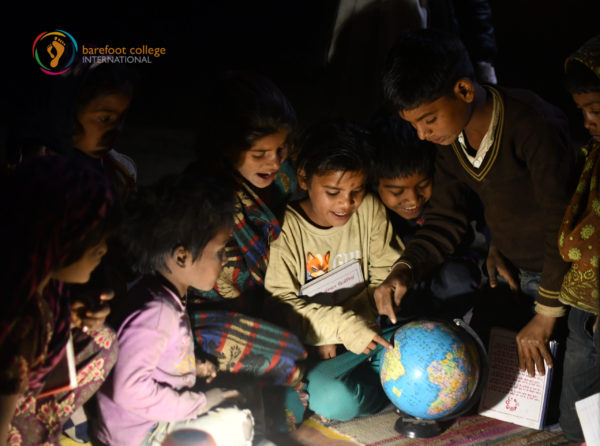 Barefoot’s remote learning curriculums are helping children continue their education
Barefoot’s remote learning curriculums are helping children continue their education
Our Approaches Avoid the Nullification of Previous Learning:
APPROACH 1: WORLDREADER PARTNERSHIP
200+ children have been presented with the digital 14-day reading challenge, learning through E-stories, available thanks to our Worldreader partnership, that are sent over Whatsapp each morning of the two-week duration. Teachers and educators are first sent the material to share with their students, then the children read the stories aloud to their parents.
APPROACH 2: TELEPHONIC DISSEMINATION
600+ children have been given pre-recorded audio material over basic feature phone every 3 days for a 4-week period. These voice calls, which use IVR technology, are given by the teachers of students to help guide children through learning activities. All activities were created by a content committee of 18 teachers from 11 states.
APPROACH 3: WORKSHEET DISSEMINATION
175+ children have received hard copies of handwritten learning material, created by the teachers of the students. The material is physically delivered to children’s homes every 15 days. An average of 30 hours of content for each delivery is included, while those with access to phones receive check-in calls where any inquiries can be made.
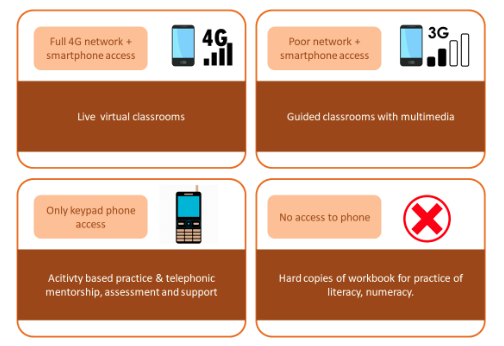 Our 3-tiered Approach ensures that access to technology is not a limiting factor
Our 3-tiered Approach ensures that access to technology is not a limiting factor
Regular call-ins made by teachers enable them to ask their students if their work was delivered successfully and whether they were able to complete their assignments. It also allows students to have any of their questions answered, and share their feelings/concerns about the content they were requested to do. Existing teachers have the option to connect through either video or audio means.
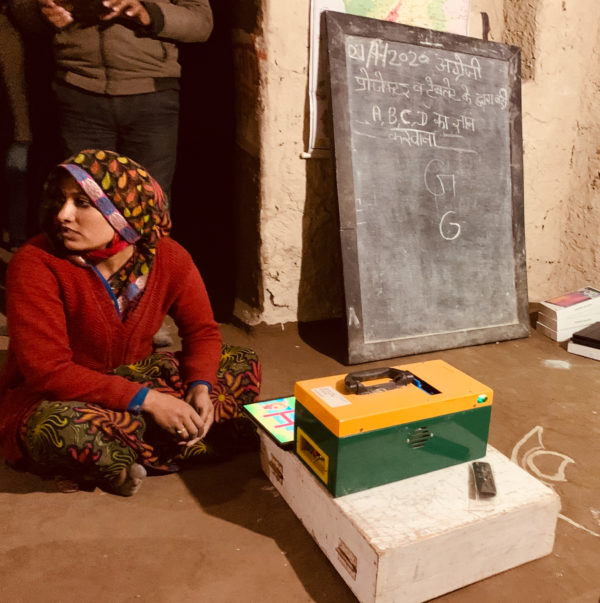 With the help of rural teachers, our Alternative Strategies are underway
With the help of rural teachers, our Alternative Strategies are underway
Education is More Essential this Year than Ever Before
At a time where being informed can help to save lives and protect families, information disseminators must strive to assemble innovative methods that can keep even the remotest regions connected with accessible, verified resources. Following the disruptions of the global pandemic, many young minds have lost accessibility to school-based learning, causing the motivation to continue with studies to decrease, resulting in more dropouts.
These numbers are even more critical for women and girls, who inherit increased responsibilities, such as tending to the sick, while COVID-19 affects their regions. A lack of education for girls results in an increased rate of forced marriages due to economic constraints, early pregnancy, and sexual abuse and exploitation. It also reduces their access to food and hygiene products, which are often supplied by governments for students.
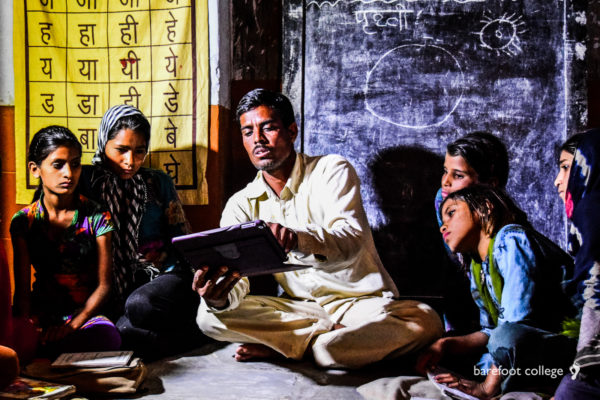 Local teachers are integral to the success of our Alternative Strategies
Local teachers are integral to the success of our Alternative Strategies
We’re Keeping More Girls in School
To address the risk of losing girl students and to reduce the abuse that may be inflicted on these minorities, our Education team initiates tactful conversations around child sexual abuse, girl child rights and gender equality. Food security, medical safety, WASH information and COVID preparedness are also all discussed in detail to assist rural families.
Barefoot College now runs 50 Digital Night Schools across India. This includes 75000 children educated, 14000 educators trained, an 85% migration reduction rate and a 40% rate of students who transition into mainstream education systems. With programs sensitively tailored to geographic, social, cultural and economic barriers, our Education program addresses 5 Sustainability Development Goals and honours India’s Right to Education law.
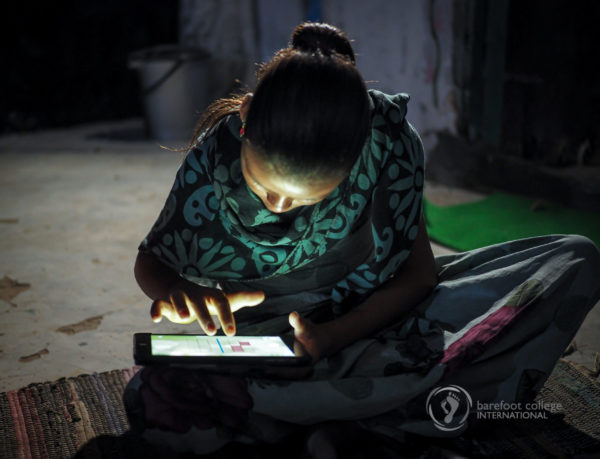 Girls’ education and empowerment are key for more resilient communities
Girls’ education and empowerment are key for more resilient communities
Support our Education initiatives today
Your efforts can help give the gifts of empowerment and security in children’s lives during COVID-19

